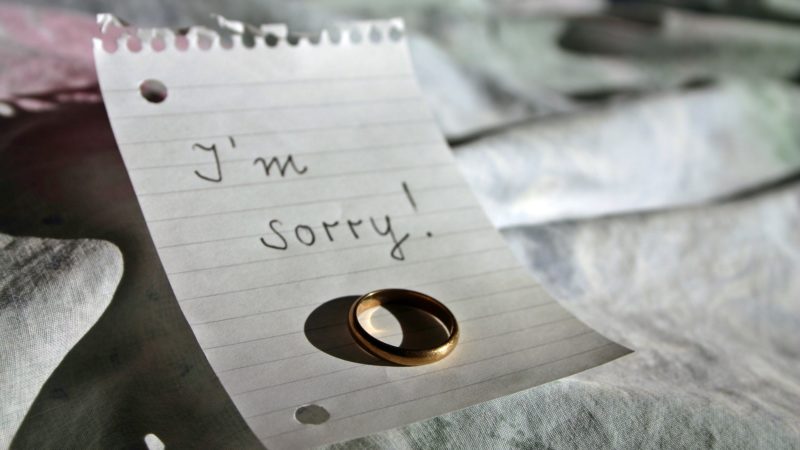“I’m sorry.”
“I shouldn’t have said/done that.”
“I owe you an apology.
The past few weeks meeting with my clients got me thinking about the concept of an apology and the emotional obstacles that get in the way of apologizing.
In being human, the notion that we may hurt or offend someone is unavoidable. Yet, it is not always easy to recognize when you’ve hurt someone else, along with the blow to your self-esteem that you have behaved badly. Let’s be honest… nobody likes to admit he or she is wrong. Most of us want to believe that we are sensitive to other people’s problems.
In most cases, I notice with clients and in my personal experiences, that you find yourself justifying that the hurtful thing is actually true. The focus becomes about the other person’s behavior and what they deserved. One thing I have learned is if you have to convince yourself that you are right AND true, it usually means the opposite.
Adults apologize for various reasons. For example, Bill Maher apologized publicly for using a racial slur on his television show. However, most people don’t think Maher genuinely meant his apology because of his reputation for being edgy, opinionated and dogmatic. Others believe Maher only apologized when backlash against his racial slur threatened the viability of his show. In other words, Maher issued a “tactical non-apology” because he knew it was expected of him. A genuine apology should be a one-sided communication–an acknowledgement of guilt and regret on your side and asking nothing in return.
Most of us apologize because we feel guilty or ashamed of something we did that hurt another person’s feelings. Apologizing for other reasons (you bumped into someone, you spilled red wine on someone’s white shirt) is far easier to do than apologizing for lying, cheating or stealing from a family member or friend. Why is that?
Guilt, Shame and Regret
Apologizing opens the door to two emotions we always try to avoid experiencing–guilt and shame. Guilt for doing something wrong and shame for who we are. Admitting you have done something wrong is incredibly difficult because it’s hard for humans to separate their sense of identity from their actions. If you lie to extricate yourself from an unexpected situation (and the lie works to temporarily provide escape from a harsh reality), you’re less likely to feel shameful or guilty for lying at the moment or in the near future. Eventually, most people start feeling bad for behaving badly.
It is not difficult to identify one’s own behavior. In order to make a genuine apology, one should feel the resistance and the self-justifications to owning up to mistakes and taking responsibility for the hurt inflicted. Once you apologize, step back and allow the other person to digest your apology. Do not demand forgiveness. An important part of tendering a true apology is being able to tolerate real guilt and regret despite having apologized.
People know intuitively when they hear heartfelt apologies because it comes from the soul, not from fear.



